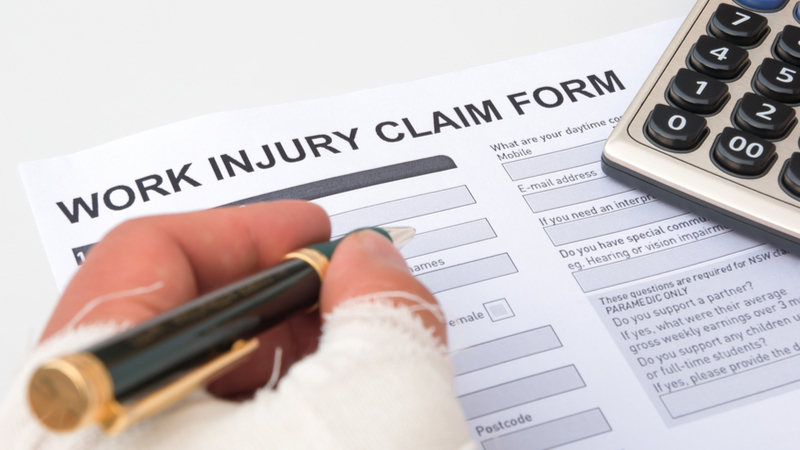
Workman’s Compensation Law Basics
Workman’s compensation is a type of insurance that provides benefits to employees who are injured or become ill due to their work. The purpose of workman’s compensation laws is to ensure that injured workers receive the medical care and financial support they need to recover from their injuries or illnesses and return to work.
Workman’s compensation laws cover a wide range of workplace injuries and illnesses, including:
- Physical injuries, such as broken bones, sprains, and cuts
- Occupational diseases, such as carpal tunnel syndrome and asbestos-related illnesses
- Mental health conditions, such as depression and anxiety
The benefits available under workman’s compensation laws vary from state to state, but typically include:
- Medical expenses
- Lost wages
- Disability benefits
Filing a Workman’s Compensation Claim
If you’ve been injured on the job, filing a workman’s compensation claim is crucial to receive the benefits you deserve. Here’s a step-by-step guide to help you navigate the process:
Reporting the Injury
- Inform your employer about the injury promptly, both verbally and in writing.
- Be clear about the date, time, location, and circumstances of the incident.
- If possible, gather witness statements and take photos of the accident scene.
Filing the Claim
- Contact your state’s workers’ compensation agency to obtain the necessary forms.
- Complete the forms accurately and provide all requested information.
- Submit the completed forms to the agency within the specified deadlines.
Importance of Timely Filing
Filing your claim on time is essential to protect your rights. Most states have strict deadlines, and missing them can result in denial of benefits or reduced compensation.
Gathering Evidence
- Collect medical records documenting your injury and treatment.
- Obtain witness statements from anyone who saw the accident or has knowledge of your injury.
- Gather any other relevant documents, such as accident reports, pay stubs, or employment records.
Seeking Legal Assistance
Consider consulting with an attorney if you have any questions or concerns about the process or if your claim is denied.
Employer Responsibilities and Defenses

Under workman’s compensation laws, employers have specific obligations to ensure the safety and well-being of their employees. These responsibilities extend beyond providing a safe work environment to ensuring timely and fair compensation for work-related injuries or illnesses.
However, employers may raise various defenses in workman’s compensation cases to contest liability or reduce the amount of compensation awarded. Understanding these defenses and developing strategies to overcome them is crucial for injured workers seeking fair compensation.
Common Employer Defenses
Common defenses raised by employers in workman’s compensation cases include:
- The injury or illness was not work-related. Employers may argue that the injury or illness occurred outside the scope of employment or was caused by a pre-existing condition.
- The employee was intoxicated or under the influence of drugs. Employers may assert that the employee’s intoxication or drug use contributed to the injury or illness.
- The employee failed to follow safety protocols. Employers may claim that the employee’s failure to adhere to established safety rules or procedures led to the injury or illness.
- The employee’s injury or illness is not disabling. Employers may argue that the employee’s injury or illness does not meet the legal definition of disability and, therefore, does not qualify for compensation.
Overcoming Employer Defenses
To overcome employer defenses, injured workers can employ various strategies:
- Gather evidence to prove the injury or illness was work-related. This may include medical records, witness statements, and documentation of the work environment.
- Challenge the employer’s assertion of intoxication or drug use. Obtain medical evidence or witness testimony to refute the employer’s claims.
- Demonstrate that the employee followed safety protocols. Provide evidence of training, adherence to safety rules, and any mitigating circumstances that may have contributed to the injury or illness.
- Obtain a medical evaluation to establish the extent of the disability. A thorough medical evaluation can provide objective evidence of the employee’s limitations and the impact of the injury or illness on their ability to work.
Negotiating and Settling Workman’s Compensation Claims

Negotiating and settling workman’s compensation claims is a crucial step in the process of obtaining compensation for injuries sustained at work. It involves discussions between the injured worker and the employer or their insurance carrier to reach a mutually acceptable agreement.
Factors to Consider When Evaluating a Settlement Offer:
- Severity of the injury and its impact on the worker’s ability to work and earn a living
- Medical expenses, both current and future
- Lost wages and future earning capacity
- Pain and suffering
- The strength of the worker’s case and the likelihood of success in a hearing or trial
Negotiating a Fair and Reasonable Settlement:
- Gather all necessary documentation, including medical records, wage statements, and any other evidence supporting the claim.
- Consult with an experienced workman’s compensation attorney to assess the value of the claim and guide the negotiation process.
- Be prepared to provide a detailed explanation of the injuries and their impact on the worker’s life.
- Be willing to compromise and negotiate within reason, while ensuring the settlement meets the worker’s needs.
- Document the settlement agreement in writing and have it reviewed by an attorney before signing.
Trial and Appeals

A workman’s compensation claim may go to trial if the parties cannot reach an agreement during negotiations. The trial will be held before a workers’ compensation judge, who will hear evidence from both sides and make a decision. The procedures and rules involved in a workman’s compensation trial are similar to those in other civil trials.
Appeals
If either party is dissatisfied with the judge’s decision, they can appeal to the state’s workers’ compensation board. The board will review the record of the trial and make a decision. If the board’s decision is still unsatisfactory, the party can appeal to the state’s appellate court.





